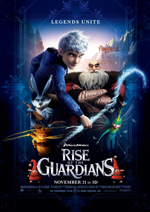Socially conscious dramas have long been a staple of
Hollywood. Promised Land, written by
stars Matt Damon and John Krasinski, is certainly attempting to evoke the
classic works of Frank Capra along with Bill Forsyth's Local Hero. The movie touches upon several hot button topics, but
primarily focuses on hydraulic fracturing or "fracking," the
controversial process of mining natural gas from underground rock layers.
Steve Butler (Damon) is a top sales rep for Global
Crosspower Solutions and in line for a promotion to VP of Land Management.
Before settling into a cushy office gig, Steve's superiors task him with
securing the drilling rights in McKinley, a small farming community hit with
hard times. Butler feels he is the right man for the job because he grew up on
a farm in Iowa, which went into a downward spiral following the closure of the
local Caterpillar plant. Butler and his partner Sue Thomason (Frances
McDormand) have their entire strategy mapped out, including driving into town
in a weathered pick-up truck and dressing in down-to-earth denim. Many of the
locals have been anxiously awaiting their arrival others are easily swayed with
the promise of lucrative payouts and improved schools.
Everything seems to be in the bag for Global Crosspower
until a low-key town meeting at the high school gym. Frank Yates (Hal
Holbrook), a former engineer turned high school science teacher, raises his
concerns that the fracking could contaminate the town's water and soil. Soon,
Dustin Noble (Krasinski), a fervent environmentalist, arrives with evidence
that Global caused irreparable damage to his farm in Nebraska.
Though they try their best to be even-handed, it's clear
Damon and Krasinski are strongly opposed to fracking. Damon's beliefs were
strong enough that he initially planned to direct Promised Land, before handing the reins to his Good Will Hunting director Gus Van Sant. Van Sant handles the film
with a gentle hand and captures the beauty of the rural landscape with a solemn
tone. The acoustic folk rock and ethereal score by Danny Elfman add to the old
fashioned atmosphere. A montage of life in McKinley acts as a forlorn tribute
to the heartland of America, which has been hit hard by the economic crisis. One
character bluntly raises the fact that there are no drills in Manhattan and the
gas company has arrived solely because they are poor and desperate.
Damon and Krasinski forget a few basic rules of
screenwriting. Rather than tell a good story and allow their message to flow
forth naturally, they hammer home their ideology on the shaky back of an
inconsistent script. Steve Butler is meant to be a confident hotshot, yet he's
completely thrown off his game by the sudden opposition of Yates and Noble.
You'd think he had enough experience to deal with any arguments in an
intelligent manner without throwing a tantrum. A vital twist in the third act
is too convenient and hackneyed not to induce eye rolling.
Credit goes to the stellar cast for preventing the film from
falling further into ham-handed moralizing. Damon and McDormand turn in fine
performances in spite of their underwritten characters. Old pro Hal Holbrook
lends an extra layer of gravitas to every one of his scenes. Rosemarie DeWitt
is also terrific as an elementary school teacher being romanced by Butler and
Noble. She's made a habit of these strong supporting roles in good (My Sister's Sister) or bad (The Watch, The Company Men) flicks. Titus Welliver has a quiet turn as the
owner of the wonderfully named "Rob's Guns, Groceries, Guitars, and
Gas," who has amorous intentions towards Sue.
The art of cinema can be educating and entertaining, but Promised Land fails on both accounts. Mary
Poppins always said a spoonful of sugar helps the medicine go down. In this
case, you'll leave with nothing more than a sour taste in your mouth.
Rating: ** (*****)










